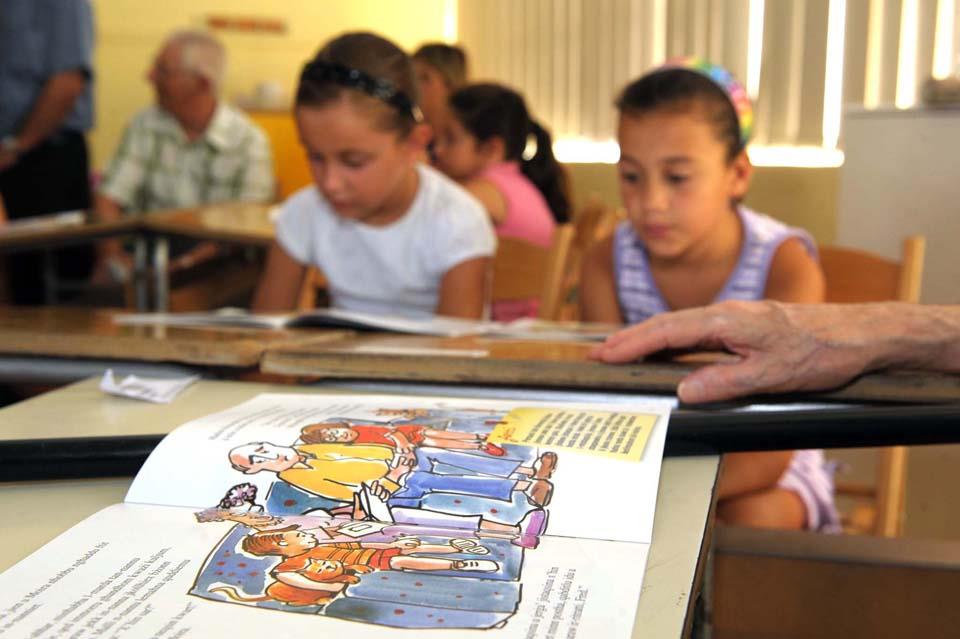Knowing what to expect and feeling confident that you can handle reduces anxiety about starting school.
Start preparing as early as possible. Back to school fever kicks in this month. Even if your child is not starting school this year, start a conversation about it. It will help your child gradually get used to the idea of going to school.
Ask, don’t tell. Asking your child what they think about school is better than telling them how they should feel about it. Allow your child to express concerns.
Encourage questions. What seems obvious to you is not obvious to a child. Answer any questions tactfully, no matter how absurd they seem. Don’t ridicule your child’s fears or hopes. They’re important to him or her.
Help your child become independent. As tempting as it is, don’t do things for your children that they can do for themselves. Allowing them to dress themselves will slow you down, but it also means they’ll feel able to cope if they lose a shoe and mum isn’t around to help them put it back on. The same goes for things like opening their drink bottle and lunch box, and going to the toilet and washing their hands afterwards.
Mark shoes to go on the correct feet. Children have trouble putting shoes on correctly. To make it easy for them, draw half a smiley face in each shoe – the left half inside the left shoe and the right half inside the right shoe. Show your child how to put the shoes together to make a whole face, and to then put them on their feet in the same order.

Practise school habits. When starting school, your child will need to do new things, like carry a lunch box or pack a school bag. Make this part of your child’s daily routine before school actually starts. That way, there’ll be fewer new experiences for your child to deal with when school actually starts.
Make school feel normal. Meet up with other families who have children at the same school your child will attend. Interacting with other children who are already in school can help your child feel curious about it. Be open to the possibility that your child might not like the idea at all or may feel anxious without showing it.
Ask your child how he or she feels. The prospect of going to school can be exciting. It can also make a child feel anxious and insecure. Helping your child express his or her feelings can make the experience seem less daunting. Let your child know that other children feel nervous about school.
Don’t speak negatively about school. Your experience of school may have been unpleasant and you want your child’s to be better. Don’t speak to your child about what went wrong for you. Instead, focus on helping your child look forward to the experience.
Visit the school before term starts. Seeing the class environment and meeting the class teacher beforehand will help your child feel comfortable about the new experience. Find out about the important areas of the school and work out how to get there and back to class. Remember that what’s important to you may not be what’s important to your child. Knowing where the toilets are, where to store their clothes and how to get back to their classroom are more important to your child than the size of the library and art room.

Arrange a playdate with classmates. Knowing one or two children in the same class will make school less daunting.
Show your child how to socialise. Social skills will help your child integrate in a new group and making friends is the quickest way of adjusting to school. Encourage your child to talk to other children while looking them in the eye and smiling. Teach them how to introduce themselves and how to ask for the other child’s name by doing it yourself when you meet someone.
Talk about the school schedule. Let your child know what time school begins and ends each day.
Be reassuring. A common fear is being unable to cope. Let your child know that you will help if anything happens at school, and that you will be there at the end of the day.
Organise a special pre-school shopping outing. Spend some time with your child to draw up a shopping list of essential and fun items for school. Make the trip seem like fun, rather than a chore.

Take your child on a practise school run. Show your child the route you will take and where you will meet at the end of the school day.
Set a routine. A few weeks before school starts, set a routine that will work during school time. Allow enough time to get ready in the morning without being rushed. You will need enough time to get to school and to be around to help your child settle in.
Encourage your child to speak up about worries. Explain to your child that it is OK to take their concerns to an adult at school, and that the rule about not talking to strangers doesn’t include their class teacher or supervisor. Children are worried about things that might seem inconsequential to an adult, like losing a pencil or drawing, or being knocked over accidentally. Explain to your child that a teacher can help to resolve problems at school and that, at the end of the school day, you’ll be there too.

Put a surprise note in your child’s lunchbox. It will remind your child that you’re ‘there’, even though you are not physically present.
A favourite toy can provide comfort. Allow your child to take a favourite toy to school. A familiar object can help your child feel less anxious.
Be friendly towards other parents. They’re in the same situation and their friendship and support will be crucial to you in the years to come. Seeing how you relate to other people will be an example to your children.
Keep your feelings to yourself. Your child is dealing with his or her own anxiety already and if you show you’re anxious, it will make things worse. Try not to cry in front of your child. You’ve said that school will be fun so seeing you cry now that school has started will confuse your child. Keep a smile on your face until it’s time for you to leave and then shed your tears when you’re out of your child’s sight.